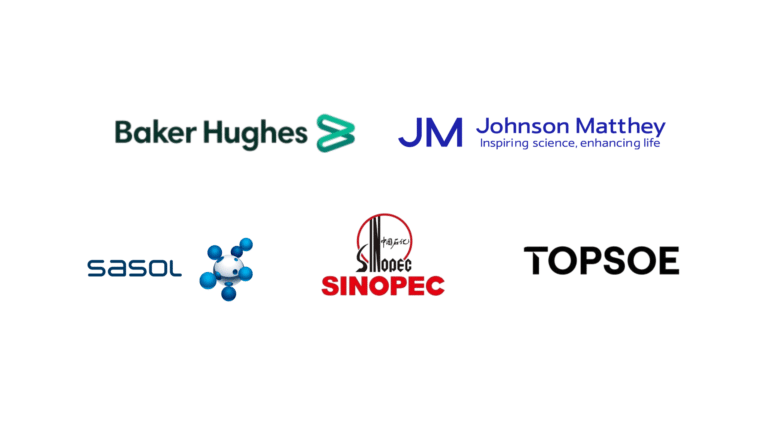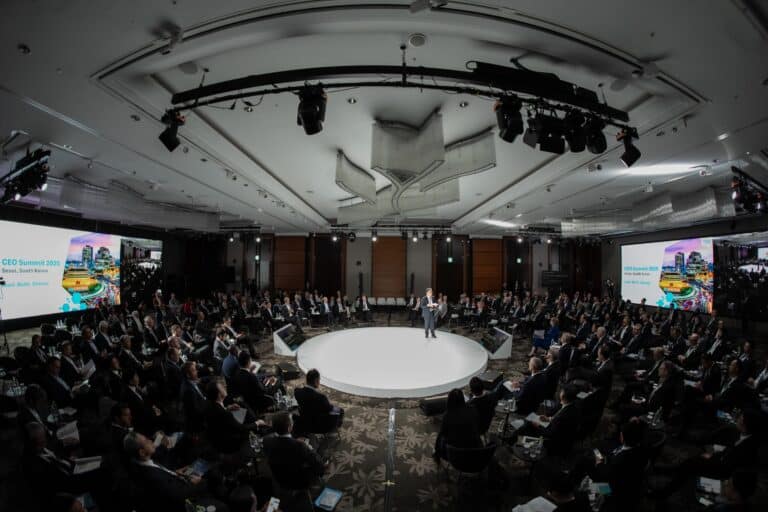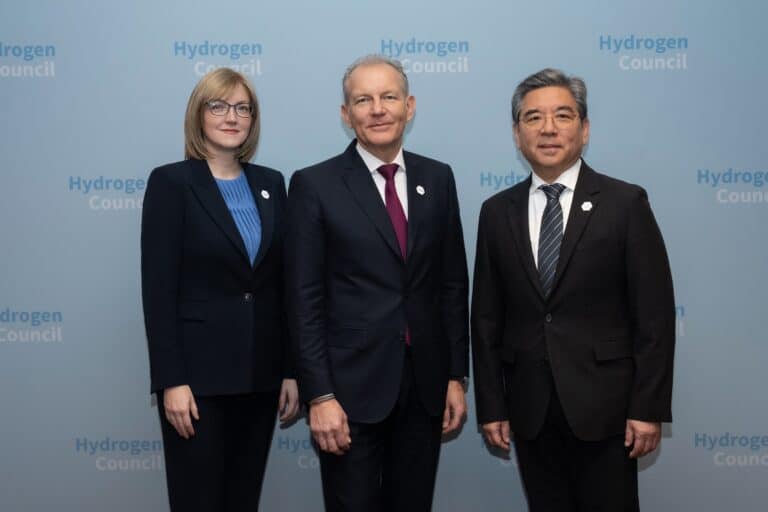BELÉM, November 12, 2025 – An alliance of first-mover governments, international organisations, and businesses from the food, agriculture, fertilizer, sustainable fuels, and manufacturing sectors has united at COP30 in Brazil to accelerate scale adoption of low-emission ammonia-based fertilizers through the Low-Emission Ammonia Fertilizer (LEAF) Initiative.
Nitrogen fertilizers are essential to global food security, supporting the harvests that feed communities worldwide. Yet conventional ammonia-based fertilizer production accounts for 510 MT of greenhouse gas emissions globally – a footprint comparable to Brazil’s or Germany’s total annual emissions. Reducing these emissions while maintaining essential nutrient supply and safeguarding food security and affordability requires a comprehensive, industry-wide effort underpinned by strong public-private collaboration.
The LEAF Initiative is designed to operationalise global efforts advancing collaborative action, particularly the Breakthrough Agenda, as well as the COP30 Plans to Accelerate Solutions and bilateral partnerships such as the one between the governments of the United Kingdom (UK) and Brazil. These global initiatives identify core areas for collaboration, all of which are addressed by the COP30 LEAF Initiative and its dedicated Public-Private Action Statement, launched on November 8, 2025, at COP30.
The LEAF Initiative has been championed by the Hydrogen Council and partners, including Breakthrough Agenda, United Nations Industrial Development Organisation (UNIDO), PepsiCo, 3Degrees Low-Emission Fertilizer Alliance, Rocky Mountain Institute, Center for Green Markets Activation, World Business Council for Sustainable Development, International Fertilizer Association, Mission Possible Partnership, Hydrogen Europe, Ammonia Energy Association.
The Public-Private Action Statement identifies three key priorities for collective action:
- Accelerate large-scale investments by closing the cost gap and activate demand
- Boost investor confidence and reduce transaction costs through standards and market-based mechanisms
- Advance public-private collaboration on policy frameworks and financial instruments
The Action Statement remains open for endorsements by November 20, COP30 Thematic Day for Agriculture, Food Systems and Food Security, Fisheries, and Family Farming.[1]
To support this initiative, the Hydrogen Council published the Roadmap to Scale Low-Emission Ammonia Fertilizers, in collaboration with key agri-food stakeholders and McKinsey & Company. The roadmap provides insights into market fundamentals and analytics supporting the key priority actions.
PepsiCo Chief Sustainability Officer Jim Andew said: “The global food system is at an inflection point where scaled investment, enabling policies and collective action are needed to transform agricultural systems, build resilience and safeguard long-term food security. At COP30, PepsiCo is proud to support the LEAF Initiative in advancing the adoption of low-emission fertilizer solutions as a means of decarbonizing agriculture while continuing to prioritize support for farmers to do what’s best for their farms, their livelihoods, and the planet.”
Petra Schwager, Chief of the Climate and Technology Partnership (CTP) Division, UNIDO, said: “UNIDO recognizes the vital role of low-emission ammonia fertilizers in building resilient and sustainable agrifood systems. UNIDO is proud to support the Public-Private Action Statement, helping countries decarbonize fertilizer production while improving food security and promoting sustainable industrial development. In particular, through technical assistance, policy advisory and capacity-building tailored to national contexts – especially in developing countries where access to affordable fertilizers remains a critical challenge. UNIDO is committed to scaling up these efforts and invites partners to collaborate in making low-emission fertilizers a cornerstone of resilient, decarbonized food systems.”
Breakthrough Agenda Secretariat said: “We welcome the launch of the Low-Emission Ammonia-Based Fertilizer (LEAF) Initiative – a milestone designed to feed into the collaborative platforms under the Breakthrough Agenda and build on the established partnerships, such as the historic partnership on global fertiliser sustainability between the K and Brazil. By bringing together global stakeholders under a common Public-Private Action Statement for COP30, LEAF helps translate shared ambition into practical solutions, driving progress across three priority areas for low-emission ammonia-based fertilizers: demand creation, standards and certification, and finance.”
Tony Will, President and Chief Executive Officer, CF Industries, said: “By providing clear and actionable priorities, the LEAF initiative sets the sector on the path to realize the opportunity that low-emission fertilizers present by ensuing that public-private collaboration translates into measurable progress on deploying low-emission fertilizer and advancing food system resilience and sustainable agriculture worldwide.”
Ivana Jemelkova, Hydrogen Council CEO, said: “COP30 is all about walking the talk, which is why we are proud to convene the LEAF Initiative with first movers across energy and food systems. It’s strong alliances like these that turn ambition into impact through concrete joint action plans – creating lead markets for clean hydrogen and low-emission solutions that drive sustainability, security and resilience.”
[1] Should your organization be interested in endorsing the Action Statement, please contact advocacy@hydrogencouncil.com
About The Hydrogen Council
The Hydrogen Council is a global CEO-led initiative with a united vision and long-term ambition for hydrogen to accelerate the energy transition. It brings together some 140 companies from 20+ countries across the Americas, Europe, Africa, the Middle East and Asia Pacific. Spanning the entire value chain, and including large multinationals, innovative startups as well as investors, the Council’s membership represents some $9 trillion in market capitalization, 7.1 million in FTEs and some $6.4 trillion in revenues.
The Council is committed to unlocking the potential of hydrogen for decarbonization, energy security, industrial competitiveness, and technological innovation as drivers for sustainable growth, creating quality jobs and delivering social value. Using its global reach to advance collaboration between industry, governments, investors, and civil society, the Council works to accelerate the deployment of hydrogen ecosystems around the world. It also supports the development of international safety and sustainability standards, paving the way for the deployment of reliable hydrogen solutions at scale.
To find out more, visit www.hydrogencouncil.com and follow us on LinkedIn.
Media Enquiries
Joanna Damerell, Communications Manager, Hydrogen Council



